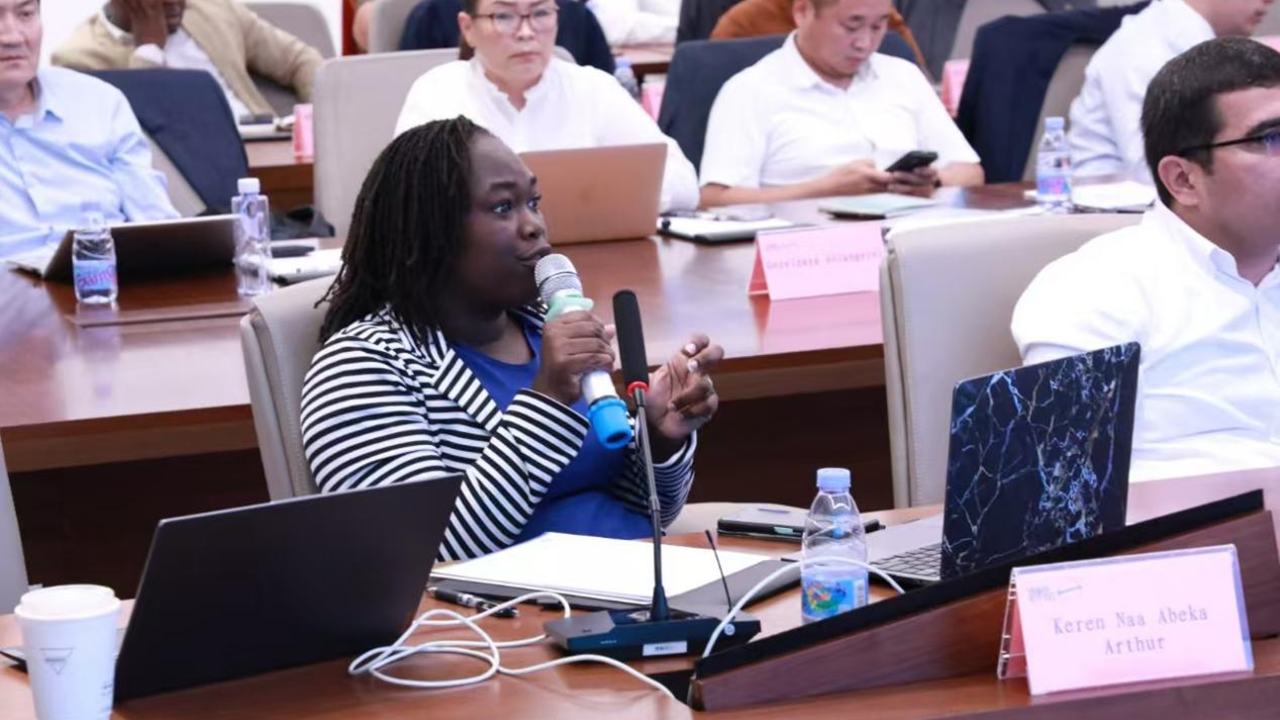Training workshop on STI policies and STI parks' operation and management launched
Writer: Liu Yangyang | Editor: Zhang Zeling | From: Original | Updated: 2024-09-18
A training workshop focusing on scientific and technological innovation(STI) policies, as well as the operation and management of STI parks for developing countries, kicked off Monday at the Belt and Road Environmental Technology Exchange and Transfer Center (Shenzhen).
Nearly 30 officials from government departments, science and technology parks, and research institutions from Ghana, Mozambique, Uzbekistan, and Mongolia are taking part in the two-week program.

Keren Naa Abeka Arthur speaks at the training workshop. Courtesy of at the Belt and Road Environmental Technology Exchange and Transfer Center (Shenzhen)
Jointly organized by the United Nations Conference on Trade and Development (UNCTAD) and the Belt and Road center, the program seeks to strengthen international cooperation in technology innovation and science park development.
Zhang Liping, chief of the Science, Technology, and Innovation for Development Section at UNCTAD, addressed the opening ceremony, highlighting the vital role of science and technology in advancing the U.N.'s 2030 Agenda for Sustainable Development.
“Science parks play a crucial role in knowledge and technology transfer, innovation, and economic growth, but they face considerable challenges, such as limited funding, resource shortages, policy uncertainties, and difficulties in coordinating stakeholders,” Zhang said.
She expressed hope that the training would provide participants with the expertise to enhance policy-making, foster professional growth, and promote mutual learning among developing nations in leveraging science parks, incubators, and accelerators.

Lourino Alberto Chemane speaks at the training workshop.
The Belt and Road center underscores the importance of green, low-carbon development, noting that Shenzhen has been a leader in tackling climate change and transitioning toward a green economy. As part of China's reform and opening-up efforts, Shenzhen offers a model, or "Shenzhen solution," for addressing global environmental challenges. The center hopes the training will serve as a platform for lasting international cooperation on green development.
Experts from the Shenzhen Urban Planning and Design Institute, the Chinese University of Hong Kong (Shenzhen), and the University of Electronic Science and Technology of China (Shenzhen) were also invited to share insights on international cooperation in green industries, technological innovation, and science park planning. They discussed future opportunities for collaboration in technology transfer and science park development.
This is the first time the U.N. science park development training program has been held in Shenzhen. Funded by UNCTAD, the program also includes industry-matching sessions aimed at helping Shenzhen's high-quality industries expand into global markets.